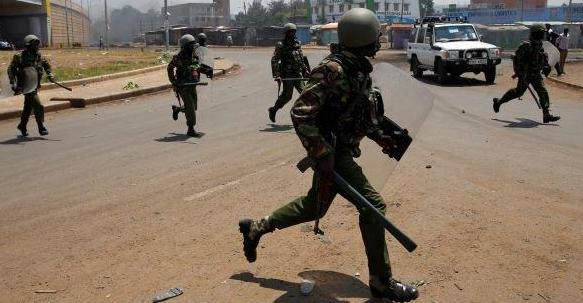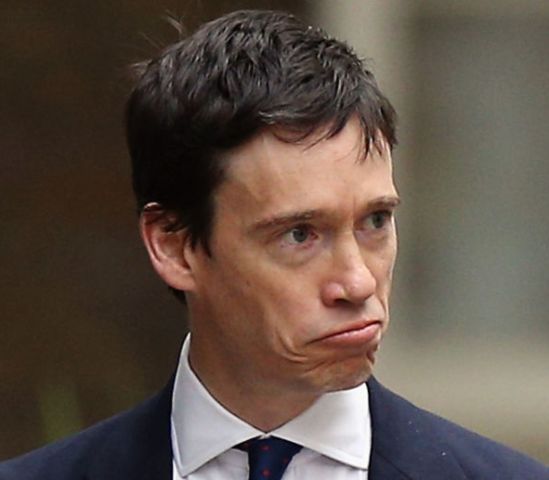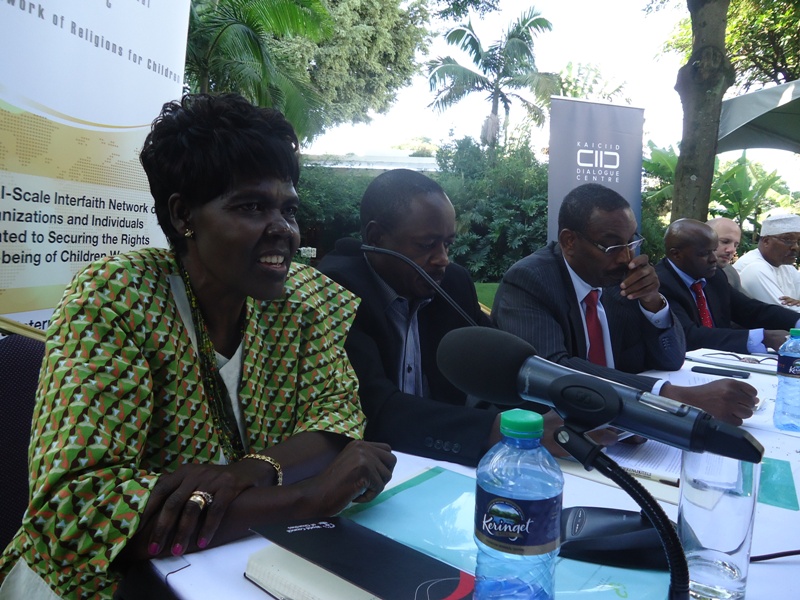By Jedidah Nguyo with Ogova Ondego
Published May 2, 2015

In his second State of the Nation Address delivered on March 26, 2015, Kenya‘s President, Uhuru Kenyatta, said that Kenyans had witnessed betrayal of trust from the very institutions charged with the responsibility of fighting corruption. He ordered any government official adversely mentioned in any corruption claim to step down. That he said the order included people serving in the Judiciary did not escape attention from the Kenyan citizenry. But almost two months later, no one from the country’s law courts has stepped aside to facilitate investigation into their conduct.
In 2014, four years after Kenya adopted a new people-driven constitution, governance watch dog, Transparency International, ranked the Judiciary as being the third most corrupt institution in this East African country in which graft is almost the official state religion.
RELATED: Why Kenyans Lack Faith in Their Judiciary
 Some 82 magistrates and 23 judges had been sacked 11 years earlier due to the vice that subverts the delivery of justice. The Judge Aaron Ringera-led ‘Reforms’ had culminated in the formation of a supposedly new Judiciary backed by the much hailed 2010 constitution. It was with jubilation that Willy Mutunga, Nancy Baraza and Keriako Tobiko were in June 2011 sworn in as Chief Justice, Deputy Chief Justice and Director of Public Prosecutions, respectively. The team not only vowed to fight corruption that had found a comfortable home in the Judiciary but to also restore the diminished public trust in the country’s law courts.
Some 82 magistrates and 23 judges had been sacked 11 years earlier due to the vice that subverts the delivery of justice. The Judge Aaron Ringera-led ‘Reforms’ had culminated in the formation of a supposedly new Judiciary backed by the much hailed 2010 constitution. It was with jubilation that Willy Mutunga, Nancy Baraza and Keriako Tobiko were in June 2011 sworn in as Chief Justice, Deputy Chief Justice and Director of Public Prosecutions, respectively. The team not only vowed to fight corruption that had found a comfortable home in the Judiciary but to also restore the diminished public trust in the country’s law courts.
However, it didn’t take long for the country’s well established religion to re-take its seat the bench. Kenya’s judicial system, Al Jazeera English reported in its Africa Investigates series in December 2011, was riddled with corruption. The report, titled Kenya: Justice For Sale, showed that a disturbing number of key players in the legal system could be bribed or bought.
RELATED: Kenya Sells Justice to the highest bidder
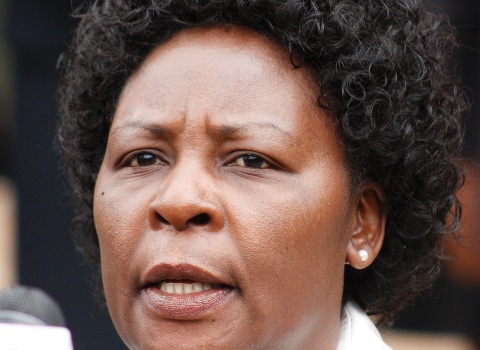 On January 26, 2014, Standard, a Nairobi daily newspaper, reported that some staff of the Judiciary were colluding with traffic police officers in extorting money from motorists. Investigations, the paper said, had revealed that traffic offenders were being given fake receipts after paying their fines to judicial officers. The situation was made worse by the introduction of mobile courts to charge traffic offenders along Kenyan highways.
On January 26, 2014, Standard, a Nairobi daily newspaper, reported that some staff of the Judiciary were colluding with traffic police officers in extorting money from motorists. Investigations, the paper said, had revealed that traffic offenders were being given fake receipts after paying their fines to judicial officers. The situation was made worse by the introduction of mobile courts to charge traffic offenders along Kenyan highways.
The real litmus test for the now ‘reformed’ Judiciary, however, came on April 16, 2013 during the hearing of a petition filed by Orange Democratic Movement party’s Presidential candidate Raila Odinga disputing the outcome of the Presidential poll results of March 2013. Questions arose over the way in which the judges handled the evidence tabled by the petitioners. Though the evidence tabled by the petitioners was voluminous the judges took little time to look at it and thus ended up triggering the question of whether they had studied the evidence before declaring their ruling in the face of the electoral commission. However, what was more shocking was that the six judges–Njoki Ndungu, Philip Tunoi, Jackton Ojwang, Mohamed Ibrahim and Prof Smokin Wanjala–led by Dr Mutunga, in their rush to dispense with the case, ended up quoting the wrong clauses of the Constitution, among other errors. A month later, the six learned judges signed an order to correct the errors. They said Paragraph 8 of the Judgement should read Article 136 (b) of the Constitution and not Article 36 (b) and that Paragraph 203 of the Judgement should read Article 138 (4) of the Constitution and not Article 38(4), for instance.
RELATED: New Kenyan Novel Dreams of Things That Never Were and Asks Why Not
As Mutunga was still trying to convince Kenyans that they indeed could seek redress from the courts he presides over, allegations of corruption arose. Chief Registrar Gladys Shollei was accused of misuse of funds. Shollei, in her own defense, accused CJ Mutunga of bias thereby making it difficult for her to work. She also accused members of the Judicial Service Commission (JSC) of wrong-doing in allocating themselves astronomical sitting allowances.
 After two months of investigation which saw Dr Mutunga admit that graft had indeed returned to the Judiciary, Shollei was dismissed after a panel on which sat the JSC commissioners that she had accused of irregularities ‘investigated’ and found her ‘unfit for office’.
After two months of investigation which saw Dr Mutunga admit that graft had indeed returned to the Judiciary, Shollei was dismissed after a panel on which sat the JSC commissioners that she had accused of irregularities ‘investigated’ and found her ‘unfit for office’.
In 2014 Judge Juma Nderi of the Industrial Court not only ruled that the removal of Shollei from office was unlawful but also wondered how all the commissioners Shollei had accused had sat on the panel chaired by Mutunga who, as per the JSC Act, should not participate in any disciplinary committee, let alone chair it. How can the rest of the Judiciary be expected to apply the law if its own head, the Chief Judge, does not?
RELATED: Kenya’s Culture of Dishonesty to Blame for Post-Election Violence
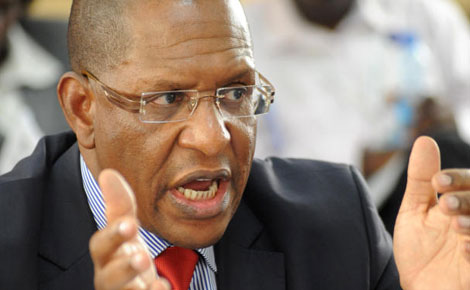 The Judges and Magistrates Vetting Board (JMVCB) has accused the Supreme Court of interfering with its work. The JMVCB faults a judgment delivered by the Supreme Court in December 2014 which limited the areas it could probe to the judges and magistrates who were in office by august 27, 2010 when the current constitution became effective. This, according to the board’s chair, Rashid Rao, limited the board’s jurisdiction to offenses that were committed before that date. He said they had encountered cases where a magistrate confessed of accepting bribes from the public after August 2010 yet there was nothing the board could do to sanction him.
The Judges and Magistrates Vetting Board (JMVCB) has accused the Supreme Court of interfering with its work. The JMVCB faults a judgment delivered by the Supreme Court in December 2014 which limited the areas it could probe to the judges and magistrates who were in office by august 27, 2010 when the current constitution became effective. This, according to the board’s chair, Rashid Rao, limited the board’s jurisdiction to offenses that were committed before that date. He said they had encountered cases where a magistrate confessed of accepting bribes from the public after August 2010 yet there was nothing the board could do to sanction him.
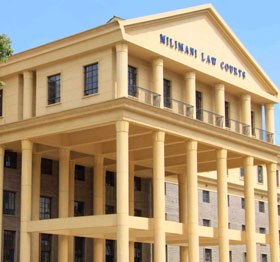 The Kenya Magistrates and Judges Association (KMJA) raised concerns in February 2015 over a move by the JSC to lock out serving magistrates from applying for 66 senior positions JSC had advertised saying that only those not serving in the Judiciary should apply.
The Kenya Magistrates and Judges Association (KMJA) raised concerns in February 2015 over a move by the JSC to lock out serving magistrates from applying for 66 senior positions JSC had advertised saying that only those not serving in the Judiciary should apply.
RELATED: How Kenya’s Moral Decadence Moulds Youth into ‘Divas’ and ‘Socialites’
According to JMVCB, the writing skills of most judicial officers are wanting. In such a serious profession where even a missing coma changes everything, one wonders how a magistrate with poor writing skills can uphold justice.
In an institution full of corruption and incompetence, there is probably no space for justice. No wonder Dr Willy Mutunga himself was once quoted in the media as having advised Kenyans to seek justice from alternative systems instead of always rushing to conventional law courts.


